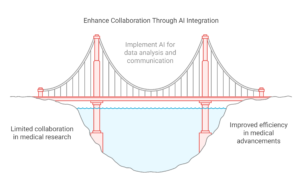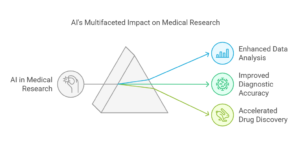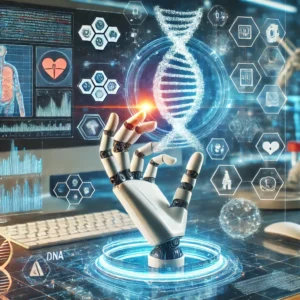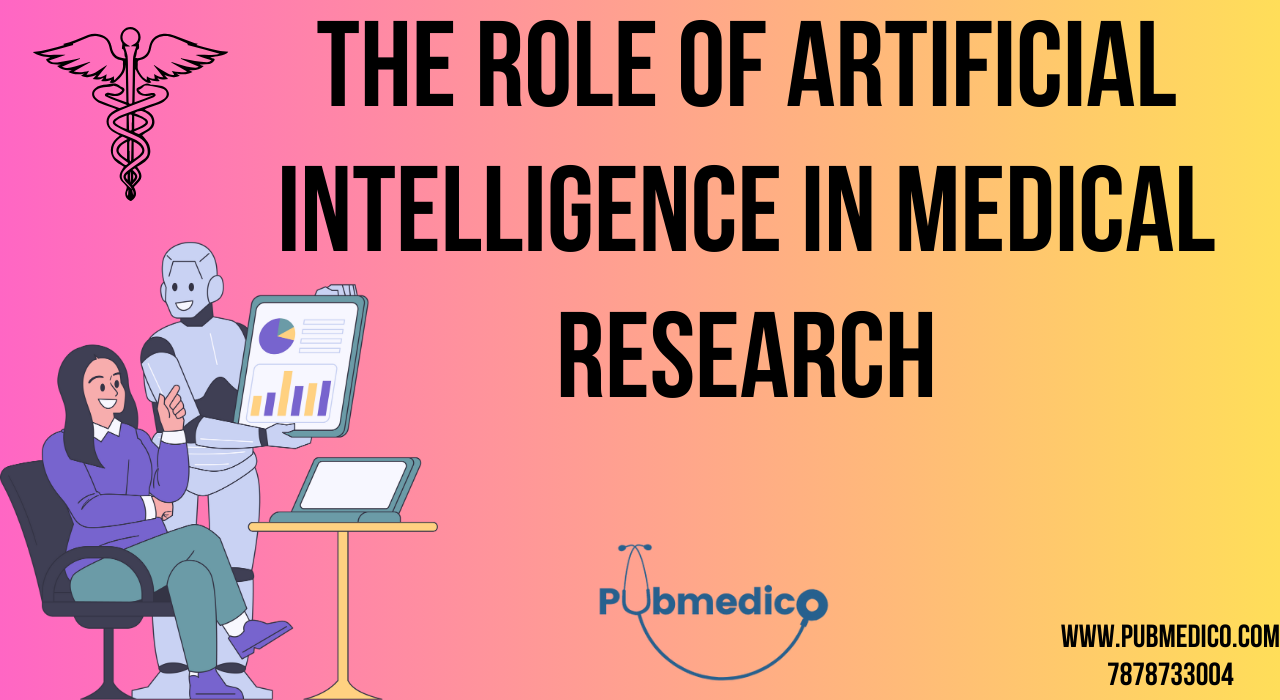The Role of Artificial Intelligence in Medical Research
The Role of Artificial Intelligence in Medical Research
Advancements in technology have revolutionized various fields, but few have been as profoundly impacted as medical research. Artificial intelligence (AI) has emerged as a groundbreaking tool, reshaping how researchers analyze data, predict outcomes, and develop treatments. From expediting drug discovery to personalizing patient care, AI is a catalyst for innovation in medicine.
What is Artificial Intelligence in Medical Research?
Artificial intelligence refers to the use of machine learning algorithms, natural language processing, and neural networks to process vast amounts of data. In medical research, AI helps analyze complex datasets, identify patterns, and suggest hypotheses far faster than traditional methods. The applications range from molecular biology to epidemiology, offering hope for tackling diseases more effectively.
 Why is Artificial Intelligence Transformative in Healthcare?
Why is Artificial Intelligence Transformative in Healthcare?
AI’s ability to process and interpret data with incredible speed and accuracy is revolutionizing healthcare. Traditional research methods often take years to yield significant results. However, with AI, researchers can process thousands of medical records, clinical trials, and genomic data in mere weeks. This efficiency means faster diagnoses, enhanced preventive care, and the discovery of new treatment avenues.
Applications of Artificial Intelligence in Medical Research
 Accelerating Drug Discovery
Accelerating Drug Discovery
The traditional process of drug development is time-consuming and expensive. AI-driven platforms like Atomwise and BenevolentAI can predict molecular properties and identify potential drug candidates, reducing costs and timelines dramatically.
Personalized Medicine
AI tailors treatments to individual genetic profiles, improving patient outcomes. Machine learning models analyze genomic data to suggest personalized treatment plans for conditions such as cancer and rare genetic disorders.
Predictive Analytics in Epidemiology
AI-powered predictive models have played a vital role in tracking and managing pandemics, such as COVID-19. These models forecast disease outbreaks, helping governments and healthcare providers prepare in advance.
Advanced Imaging and Diagnostics
AI has revolutionized radiology and pathology by enabling machines to analyze medical images for abnormalities. AI tools can detect early signs of diseases like cancer, outperforming human specialists in certain cases.
Clinical Trial Optimization
Recruiting participants and managing clinical trials is challenging. AI optimizes patient selection by analyzing vast datasets, ensuring trials are conducted more efficiently and ethically.
Virtual Health Assistants
AI-powered virtual assistants support patients and researchers by providing instant access to medical data, reminders for medication, and even mental health support.
How AI Enhances Collaboration in Medical Research
AI fosters global collaboration by connecting researchers across borders. Shared AI platforms allow for real-time data analysis and resource sharing. For instance, initiatives like IBM Watson Health bring together experts from around the world to solve complex medical challenges.
Ethical Considerations in AI-Driven Medical Research
Despite its promise, the integration of AI in medical research raises ethical concerns. Issues like data privacy, algorithmic bias, and the potential for job displacement require careful consideration. Regulatory bodies must establish guidelines to ensure AI is used responsibly and equitably.
 Challenges in Implementing AI in Medical Research
Challenges in Implementing AI in Medical Research
Data Quality and Integration
Medical data is often fragmented and inconsistent. AI systems require standardized, high-quality datasets to function effectively.
Regulatory Barriers
Governing bodies are still catching up with AI advancements. Regulations must balance innovation with patient safety and ethical concerns.
High Costs and Technical Expertise
AI implementation requires significant investment in infrastructure and skilled professionals, which can be a barrier for smaller research organizations.
Real-World Examples of AI in Medical Research
- DeepMind’s AlphaFold: Solved the protein-folding problem, enabling a deeper understanding of diseases.
- PathAI: Enhances pathology diagnoses with AI tools, improving accuracy in cancer detection.
- BlueDot: Predicted the outbreak of COVID-19 using AI-based epidemiological models.
Future of Artificial Intelligence in Medical Research
The future is bright for AI in medical research. Emerging trends such as quantum computing, AI-driven robotics, and real-time health monitoring promise to take medical science to new heights. By overcoming current challenges, AI can unlock unprecedented potential in saving lives and improving global health outcomes.
FAQs
How does AI improve medical research efficiency?
AI accelerates processes like data analysis, drug discovery, and diagnostics, significantly reducing the time and cost required for breakthroughs.
Can AI replace human researchers in medicine?
AI complements human researchers by automating repetitive tasks and analyzing vast datasets, but critical decision-making still requires human expertise.
What are the risks of using AI in medical research?
Risks include data privacy breaches, algorithmic biases, and over-reliance on technology without proper validation or ethical oversight.
How is AI used in disease prediction?
AI models analyze epidemiological data and patient records to forecast disease outbreaks and identify at-risk populations.
What role does AI play in personalized medicine?
AI analyzes genetic and clinical data to customize treatment plans tailored to individual patients, improving treatment efficacy and reducing side effects.
Are there regulations governing AI in medical research?
Regulations are evolving, with efforts focused on ensuring data privacy, algorithm transparency, and ethical use of AI in healthcare.
Conclusion
Artificial intelligence is not just a tool but a revolutionary force in medical research. By enabling faster discoveries, personalized care, and improved diagnostics, AI holds the potential to redefine the healthcare landscape. However, ethical considerations and implementation challenges must be addressed to fully harness its power. As technology continues to evolve, the synergy between AI and medical research promises a healthier, more innovative future for humanity. if you need t know more Contact Us




